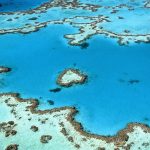 August 17, 2021 10:38 am
Published by Climate Extremes
August 17, 2021 10:38 am
Published by Climate Extremes
The ocean’s much larger heat capacity acts as “memory” suppressing the atmosphere’s “high-frequency variability” (over time scales of weeks) while producing oceanic motions that vary over longer time scales. This paradigm aims to explain how low-frequency variability emerges in the ocean. But, recently, this paradigm has been challenged.
 June 30, 2020 10:46 am
Published by Climate Extremes
June 30, 2020 10:46 am
Published by Climate Extremes
CLEX researchers found the influence of climate change and the depletion in stratospheric ozone are the major drivers over the Atlantic Oceans that shift westerly winds further south. However, over the Pacific and Indian oceans natural variations induced by sea surface temperature changes in the tropical Pacific also play an important role.
 August 1, 2019 10:00 am
Published by Climate Extremes
August 1, 2019 10:00 am
Published by Climate Extremes
The Climate Variability program has seen an extraordinary amount of activity over the past four months with new arrivals, a clutch of thesis submissions, awards, research voyages and a wealth of research.
 July 18, 2019 3:00 am
Published by Climate Extremes
July 18, 2019 3:00 am
Published by Climate Extremes
In this project, we will investigate the links between precipitation extremes and the Interdecadal Pacific Oscillation (IPO), including its signature in El Niño–Southern Oscillation (ENSO) impacts, across tropical land regions.
 May 21, 2019 1:01 pm
Published by Climate Extremes
May 21, 2019 1:01 pm
Published by Climate Extremes
Natural variability has been found to play a role in the speed of warming of land surface temperatures. With indications that the negative Interdecadal Pacific Oscillation is now becoming positive, this suggests that the hiatus period is over and we are likely entering a phase of accelerated warming of global surface air temperatures.
May 13, 2019 12:09 pm
Published by Climate Extremes
Global mean surface temperature response to Interdecadal Pacific Oscillation and Atlantic Multidecadal Variability in CMIP5 Zoom details: The zoom meeting details are as follows: Join from PC, Mac, Linux, iOS or Android: https://unsw.zoom.us/j/825572965 Or iPhone one-tap: 16699006833,825572965# or 16465588656,825572965# Or Telephone: Dial: +1 669 900 6833 (US Toll) or +1 646 558 8656 (US Toll) Meeting ID: 825 572 965 International numbers available: https://zoom.us/u/ax4KAMBB6 Or a H.323/SIP room system: SIP: 7588@aarnet.edu.au or H323: 825572965@182.255.112.21 (From Cisco) or H323:... View Article





